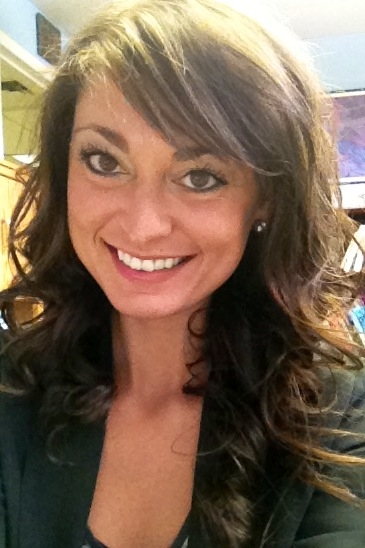I occasionally have guest bloggers here on Practice of the Practice. I look for folks that can offer a point of view that is different from mine. They may have expertise or experiences that I can learn from. That is why I asked Tarah Elhardan to write a few articles. Tarah is in her final semester of her Masters of Arts through Western Michigan University in Traverse City, Michigan. I first met her a year ago while I was doing a classroom presentation on launching a counseling private practice. From that presentation, I launched this website. Tarah came up to me afterward and was very excited about learning more. She took that first step of connecting with someone that is further along in their process. I have talked about this throughout the blog and my e-book. I have done the same to grow my practice and my career.
A lot has changed since i graduated in 2004. It doesn’t seem like that long ago, but the use of technology, graduate school approaches, and access to information has shifted in significant ways. Since I supervise LLPCs in Traverse City, Michigan I thought it would be good to build some articles around practical issues that new graduates are facing. Tarah will be doing a series of posts that work to assist new LLPCs and counseling graduates to grow and learn to successfully launch into their careers as counselors.
Take it away, Tarah.
-Joe
My name is Tarah Elhardan and I am currently a student completing my internship at Northwestern Michigan College, in Traverse City, Michigan. I am about to graduate with a Masters in Clinical Mental Health Counseling from Western Michigan University. When I started this program around two and a half years ago in the fall of 2010, there were some things that I wished I would have known or had a more clear idea about. I want to share a few things to help other students in the program. Also, I think these things apply to any Master’s program.
As graduation quickly approaches, I am eager to launch into my career in the field and see where it takes me. The path to get here has been anything but easy, but all worth it in the long run. I’m excited to have my limited license soon and start helping people to the best of my abilities!
Here are my top five things that I think would be most helpful to students starting this program at Western Michigan University as they move toward getting their LLPC license in Michigan. Reading this may also help those in other programs think of similar questions to ask their advisor to make sure they know what they are getting in to!
Tip #1 | Learn about the program, saving money, and preparing for the practicum
Here are the links to the MA in Counseling forms for both Clinical Mental Health Counseling and Counselor Education:
CMH- http://www.wmich.edu/cecp/academics/forms/Clinical_Mental_Health_Counseling_Program_of_study.doc
School- http://www.wmich.edu/cecp/academics/forms/school_counselor_license_K12_program_of_study.doc
There are also classes that need to be taken before practicum. These classes are:
- CECP 6020 – Group Dynamics & Procedures
- CECP 6030 – Tests and Measurement
- CECP 6040 – Counseling Techniques
- CECP 6050 – Professional Issues & Ethics
- CECP 6110 – Theories of Counseling
- CECP 6100 – Career Development
*7. CECP 6070 – Multicultural Counseling and Psychology
**8. CECP 6290 – Organization & Principles of ELEMENTARY School Guidance
**9. CECP 6300 – Organization & Principles of SECONDARY School
Ten-hours participation in a small group is required of students in Counselor Education CACREP accredited programs, e.g., School Counseling, Community Counseling, and College Counseling.
Students acquire these hours in the group dynamics class, in which they co-facilitate various types of therapy groups with their peers, acting as both the group members and facilitators.
Classes are not offered every semester when you are not on the main campus. It is common for classes at the Traverse City campus to be offered in the fall and then not return again for two years. Make sure that you find out what classes you need to complete your program to avoid having to wait until it is offered again, which can potentially set one back for graduation, which will prolong you from getting your license and attaining a job in the field. If you miss or skip a class and decide to take it before it returns to the TC campus you can then choose to take it in Grand Rapids or Kalamazoo. However, consider that these classes might be weekday classes and will require multiple days of driving during the week.
Interlibrary Loan/ MeLCat
This is an awesome service for any student who lives off campus or at a satellite campus. The main campus library will send you books/textbooks/media to your home free of charge. MeLCat is a program where the WMU library will search other libraries’ inventories for the item that you are looking for, which will also be sent to your house for free. Here is the link to the library services: http://www.wmich.edu/library/services/loan
Tax Write-offs
- All student expenses can be written off, things such as gas mileage, textbooks, supplies and equipment. Also, if you are paying back student loans already you can write off the interest on student loan repayments. Oil changes could possibly even be written off if you are driving significantly for class every day/week.
- There is also the Hope Tax Credit, Lifetime Learning Credit and the Tuition and Fees Deduction Credit that you may possibly be eligible for. Here is an article about these various credits: http://www.apa.org/gradpsych/features/2011/tax-tips.aspx
If you are a Traverse City campus student, the closest clinic to complete Practicum is in Grand Rapids. Each week, for 15 weeks, you will have to drive there to participate in the class that starts at 5:00pm and lasts until 9:00pm. Before that time there is also individual supervision that takes place usually in the early afternoon. Keep in mind it takes at LEAST two hours to get there (Two hours and twenty-two minutes approximately), on a day where the weather is good. The trip is 283 miles round-trip.
If supervision is at 1:00 pm, plan on leaving at 10:00am to avoid feeling rushed. Add the two and a half hours for commuting on to 9:30pm when you leave class and you’re looking at getting home around midnight. Luckily, you will be paired with a few other Traverse City students (usually) so there is the option to car pool, which makes the trip more tolerable and cheaper.
Personally, the trip took a full tank of gas each trip and at the time cost around $3.34/gallon. To fill my 18 gallon tank it cost around $60.12, multiply that by 15 weeks and I spent about $901.80 just in gas for the semester to get to that class. However, do keep in mind that this cost is tax-deductible because it is considered a student expense, and also consider how many people you are car-pooling with.
The Practicum application can be found here: http://www.wmich.edu/cecp/academics/forms/6120.pdf
Tip #2 | Plan for the bridging experience
Students starting or maybe even half way through the program, may be asking themselves, what is bridging? Bridging is a requirement of the program for all Masters in counseling students. It is completed at the same time that one completes practicum.
Bridging consists of co-facilitating a therapy group for 25 contact hours. This is co-facilitated and can be run with another peer or staff member. Your supervisor for bridging has to have their full license (LPC, NOT LLPC). The 25 hours completed from bridging in addition to the 15 (minimum number of direct contact hours to be completed) you do in practicum makes up the direct contact hours for practicum. Which totals 40 for 100 hours that is required, the other 60 will be indirect contact hours consisting of group supervision, individual supervision, and documentation.
Students set-up their own bridging, which I recommend doing weeks before the semester begins. This will ensure that you have a placement and allow enough time to complete the necessary paperwork. The time that you will have to set aside for bridging averages to two hours per week over the (15 week semester). If you miss a few weeks in the beginning because it has not been set-up yet, you will have to make them up towards the end of the semester or get an INCOMPLETE for practicum and finish the hours after the semester has officially ended. This could also push your internship back further if you are lacking a significant amount of hours and have to complete bridging into the next se For Counselor Education
“CACREP accredited programs, 25 hours of “bridging” experience in CECP 6120 is also required during the CECP 6120 experience. The bridging experience cannot be completed at any time other than during the CECP 6120 counseling practicum. Examples of this small-group experience include a counseling group, psychoeducational group, or personal growth and development group. Staple documentation of your group experience to this application; include your name, location name, dates, and the leader’s signature.”
This is directly quoted from the Western Michigan University application for practicum.
It can be found here on the 6120 Practicum application. http://www.wmich.edu/cecp/academics/forms/6120.pdf
Tip #3 | The internship is 600 hours
A 600-hour internship is also required for the program.
The student makes their own internship arrangements. There are both pros and cons to this. Yes, it may be stressful to have to contact agencies, schools, institutions to try and secure an internship, but you also have the opportunity to choose where your internship experience will be. Think about doing these steps:
1. Take the initiative ahead of time and research places.
2. Go there and talk to the staff about their roles and take a tour.
3. The internship placement paperwork has to be completed the semester prior and takes a few weeks to go through all of the necessary motions. So get rolling early to make sure are where you want to be!
Link to internship site form: http://www.wmich.edu/cecp/academics/forms/cecp6130siteinfoform7-28-10.pdf
Also, keep in mind that almost always these internships are NOT paid. Some students will luck out and get hired while they are close to being done with the program and are then able to count those hours for their internship, or are already working somewhere that they can accumulate some of their hours but think about the bigger picture. What will be the best experience where you can get the MOST out of? Will you be doing the same tasks every day? Will you be learning about what is going on in your field? What is doable for you?
Many times students have to complete their internship over two semesters (part-time), because they have families; jobs etc… but if you do it full-time expect to be there on an average of 40 hours a week. So, potentially there could be a full year where you are completing an internship without pay, which is a definite financial consideration. Credits for being enrolled in an internship are also considered tuition, so you will be paying for those credits as well. Think of it as paying to work for free if you will. 🙂
Here are some useful thoughts:
1. Steps to securing your internship: http://www.wmich.edu/cecp/academics/forms/stepstoa61307-28-10.pdf
2. Keep in mind this article does not include the Traverse City campus’ information (needs to be updated) but it is still a helpful guide in steps one should take.
3. Another thing if you choose to do it either part-time OR full-time, there is a 30 day grace period for completing your internship hours if need be. They like it only to be used for special circumstances only, however, If the official 15-week school semester ends yet you still need to complete hours, you can accumulate those after the semester ends without having to sign-up for another semester. This will save you both time and money!
Tip #4 | Think ahead about the NCE/NCC the National Certified Counselor Examination
This is the test a graduate needs to take to be a certified national counselor. It consists of 200 multiple choice questions scheduled for a four-hour time period starting at 9:00 am. It is given in either October or April. The cost is $295.00 for MA level students. One has to apply to take the exam and the due date for that is months before the actual test date. Personally, my application was due the first week of January for the test that I will take on April 20th.
Here is the link for the test dates and locations across the U.S. http://www.nbcc.org/Assets/Exam/sitelist.pdf
Here is another link that includes the most frequently asked questions that students have about the exam
http://www.nbcc.org/FAQ
These are some important points you should know about the NCE/NCC:
- You don’t have to take it until you are applying for your LPC, but fresh out of graduate school you may have the most knowledge to be successful on the test.
- If something comes up and you cannot take the test on the date that you are scheduled, there is a 3 business day grace before that actual testing day to reschedule WITHOUT having to pay again. If you do not do this and reschedule for another day, you will have to pay $145.00 and there are NO REFUNDS.
Tip #5 | Know the details of getting licensed for your LLPC
When you graduate you will receive your diploma but to actually become a Limited Licensed Professional Counselor (LLPC), you have to apply for it. Graduates cannot get their full license (LPC, Licensed Professional Counselor) until 3,000 hours of counseling experience and 100 hours of supervision are acquired in no less than 2 years after graduation. To achieve the supervision, it would average out to around 1 hour each week or 4 per month.
Things needed in the application include:
Professional Disclosure Statement: This needs to include the name of your supervisor, with their signature. They have to have been through the supervisor training.
Fee: $80.00 for Limited Licensed Professional Counselor
Master’s degree with no less than a 600 hour internship and a 48 hour credit hours program.
You need a Criminal Background Check and fingerprinting
Complete the application in its entirety
Here are some websites specifically geared towards getting your license in Michigan:
http://www.michigan.gov/documents/mdch_couns_full_licpkt_83585_7.pdf
http://www.counselor-license.com/states/michigan-counselor-license.html
CACREP (Council for Accreditation of Counseling and other Related Problems)
What is it?
CACREP is a board that conducts accreditation of various programs in the counseling field to make sure that they meet the standards. CACREP’s mission is to promote professionalism and competency by preparing students for a curriculum that will have them develop into working professionals.
This link explains the vision, mission and core values of CACREP: http://www.cacrep.org/template/page.cfm?id=40
Here is a link to understand accreditation: http://www.cacrep.org/index.cfm/understanding-accreditation-
Western Michigan University is an accredited program! 🙂
From Joe:
I just want to thank Tarah for looking into all these details. My hope is that it is useful and assists new graduates and aspiring clinicians and counselors during the beginning of their careers! Have you read the other article for new graduates The Bartender Counselor, you should, it is great!
Tarah Elhardan is planning to graduate in May 2013. She is currently interning at Northerwestern Michigan College in Traverse City, Michigan through Western Michigan University. She hopes to continue to offer useful articles that will inspire and help her fellow new graduates.
![]() All photos used through Creative Commons, thank you to squidish!
All photos used through Creative Commons, thank you to squidish!



